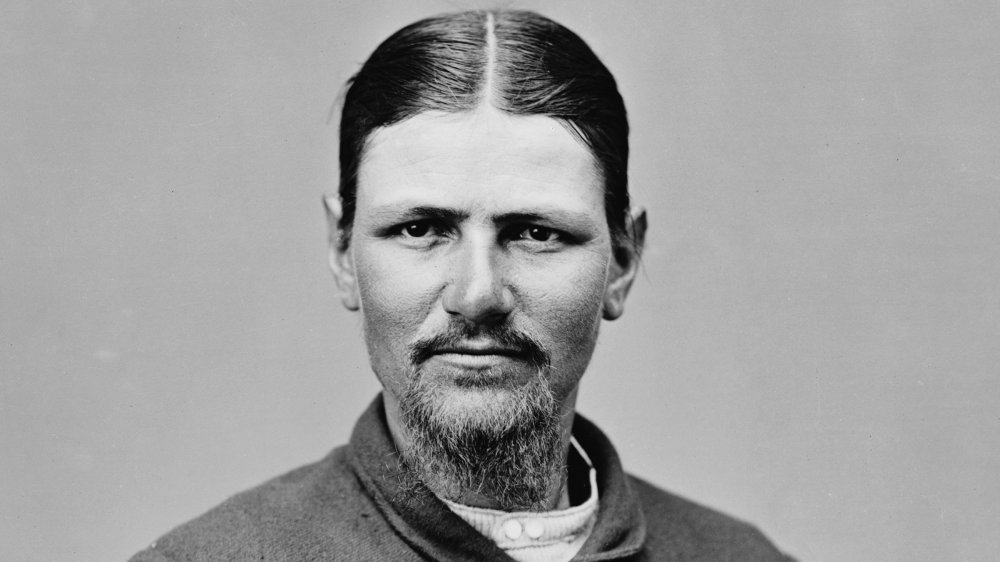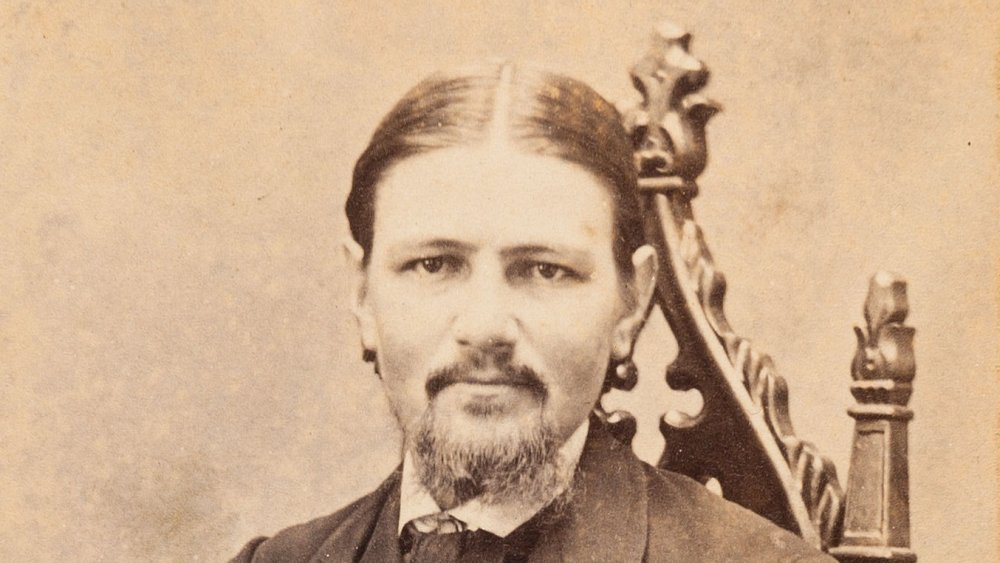The Truth About The Hatmaker Who Killed John Wilkes Booth
Per NPR, John Wilkes Booth's sister said in a memoir that a fortune teller told him he would die young. "You're born under an unlucky star," the psychic said. So maybe it was fate that when Abraham Lincoln first laid eyes on his future assassin, Booth had landed the roles of star-crossed lover Romeo in Romeo and Juliet and the villain Pescara in The Apostate. According to the Times Union, it was 1861, and Lincoln had paid a visit to the Gaiety Theater in Albany, New York, where Booth performed.
Ironically, the star-crossed Booth narrowly eluded death days before crossing paths with the president. Dubbed the "acrobatic actor," he accidentally stabbed himself in the chest during a botched stunt and missed his heart by a mere four inches, says author Joseph Collea, Jr. During that same stint in the Big Apple, Booth cheated death again when a lover attempted to stab him. He would finally face his fate the month after his last acting gig, which was eerily also in Albany.
On April 14, 1865, the actor turned assassin murdered Lincoln at Washington D.C.'s Ford's Theater and broke a leg leaping onto the stage from the balcony. Per the Washingtonian, 12 days later, Booth found himself in a burning barn surrounded by Northern forces in Port Royal, Virginia. Though the soldiers were told to hold their fire, Booth got extinguished by Union sergeant and self-made eunuch Boston Corbett.
Booth meets his hatmaker
If John WIlkes Booth met his destiny in Port Royal Virginia, then that destiny was mad as a hatter. Perhaps literally. The Times Union writes that the British-born Boston Corbett worked as a hatter after moving from England to Troy, New York in 1839. Because hatmakers used mercury to kill bacteria back then, Corbett may have suffered mercury poisoning, driving him insane. Mad hatter or not, he was certainly mad at himself when he intentionally severed his testicles with scissors in 1858. But why?
The Washingtonian explains that Corbett was fervently religious. In fact, he changed his name from Thomas to Boston after a baptism in the late 1850s. He had previously tried to drown his soul in alcohol to kill the pain of losing his wife and first child during labor. He drank his way across New England until one night he drunkenly stumbled across a street evangelist in Boston. From then on, Corbett was hellbent on being a morally upright Christian. So when he found himself lusting after prostitutes in the middle of ministering, he felt compelled to self-castrate.
Corbett's intense religiosity guided him throughout the Civil War. Before going off to battle he declared that upon facing his Confederate foes, he would "say to them, 'God have mercy on your souls' — then pop them off." He talked back to a superior officer for spewing obscenities because it was "breaking God's law." He leaned on his faith when he became a POW. And during his fateful showdown with Lincoln's assassin, Corbett ignored the order not to shoot Booth because "God Almighty directed me to." It was either that or the hats.

